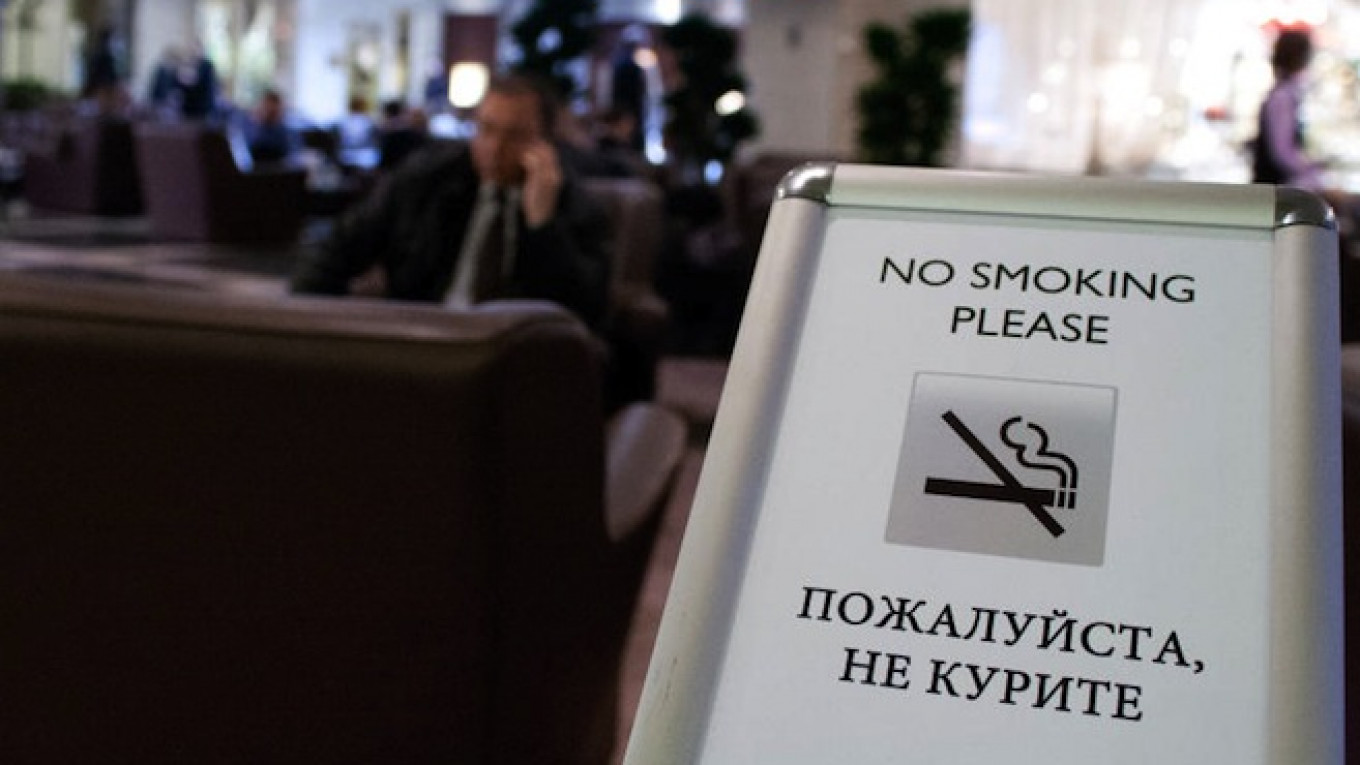As Russians brace themselves for a public smoking ban to come into effect on Sunday, lawmakers have submitted a new draft law hiking the minimum price on cigarettes in the latest bid to change the country's attitude to smoking.
The new law would see a 41-percent increase in the minimum price for cigarettes by April 1, 2015, from 39 rubles ($1.13) to 55 rubles ($1.60) a pack, as part of a massive government campaign to reduce the number of smokers in the country.
Viktor Zvagelsky, deputy chairman of the State Duma's committee on economic policy, said the draft law would officially be submitted to lawmakers after recommendations and comments on it were received from the government.
The measure expands on a series of anti-smoking measures, the first part of which came into effect last June, including a ban on smoking in universities, sports facilities, stairwells of apartment buildings, bus stops, train stations and airports.
On June 1, the list will be expanded to include restaurants and cafes, imposing a fine of up to 1,500 rubles ($45) for smokers found in violation of the ban.
Gennady Onishchenko, the former head of the Federal Consumer Protection Service and a driving force behind the anti-smoking law, on Wednesday praised the smoking ban, saying he believed it would save millions of lives.
"Many [smokers] will quit. Enough already of this apathetic attitude to one's own health and the health of loved ones. In a month, of course, the law won't save hundreds of thousands of lives. But if all measures are taken, it will allow for millions of lives to ultimately be saved. Unfortunately, we have a lot of smokers," Onishchenko told news agency Interfax.
Some 40 percent of Russians are habitual smokers, resulting in up to 400,000 deaths from tobacco-related diseases annually, according to the World Health Organization's Global Adult Tobacco Survey.
The government's anti-smoking campaign may have already made an impact, however. ITAR-TASS on Wednesday cited a Health Ministry official as saying the number of smokers in the country had fallen over the past year.
Marina Shevyreva, director of the department of protecting health at the Health Ministry, said she believed the campaign was to thank for the reduced number of smokers. Within three years, she said, the number of patients hospitalized for smoking-related illnesses would likely fall substantially.
See also:
Smoking Ban Met With Skepticism
Contact the author at [email protected]
A Message from The Moscow Times:
Dear readers,
We are facing unprecedented challenges. Russia's Prosecutor General's Office has designated The Moscow Times as an "undesirable" organization, criminalizing our work and putting our staff at risk of prosecution. This follows our earlier unjust labeling as a "foreign agent."
These actions are direct attempts to silence independent journalism in Russia. The authorities claim our work "discredits the decisions of the Russian leadership." We see things differently: we strive to provide accurate, unbiased reporting on Russia.
We, the journalists of The Moscow Times, refuse to be silenced. But to continue our work, we need your help.
Your support, no matter how small, makes a world of difference. If you can, please support us monthly starting from just $2. It's quick to set up, and every contribution makes a significant impact.
By supporting The Moscow Times, you're defending open, independent journalism in the face of repression. Thank you for standing with us.
Remind me later.






